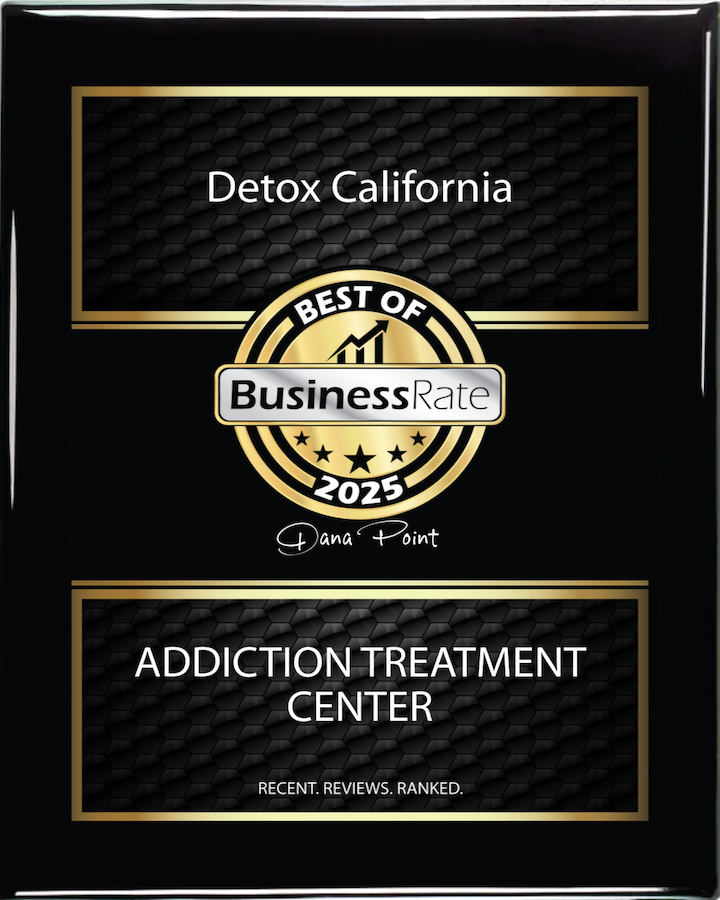We believe that family therapy is an absolute cornerstone of addiction treatment and key to long-term recovery. Our goal is to set up a lasting support system for our residents.




Detox California offers family therapy for addiction in Dana Point, Orange County, CA, helping families heal together and build a strong support system for long-term recovery.
What is family therapy? It’s a form of counseling where family members work with a therapist to improve communication, resolve conflicts, and rebuild trust impacted by addiction.
Family therapy at Detox California addresses codependency, enabling behaviors, and boundary-setting, teaching families how to support their loved one’s sobriety while fostering their own emotional well-being.
Sessions are conducted by experienced therapists in a luxury Southern California setting, providing a safe, structured space for families to heal from the relational damage of substance abuse.

Family therapy is a crucial component of addiction recovery, particularly for individuals undergoing treatment for drug and alcohol abuse. At Detox California, located in the serene setting of Dana Point, we offer comprehensive family therapy programs designed to address the complex dynamics that addiction can create within families. This type of therapy provides a safe space for open communication, allowing family members to express their concerns, rebuild trust, and foster a supportive environment for long-term recovery.
California’s unique cultural and geographical diversity offers an ideal backdrop for family therapy. In our luxury treatment center along the Golden Coast, families can heal together while enjoying a tranquil and rejuvenating setting. Our experienced therapists employ evidence-based practices to help families work through issues such as codependency, enabling behaviors, and unresolved conflicts. By involving loved ones in the recovery process, we aim to create a unified support system that encourages sustained sobriety and emotional well-being.
Family therapy is a specialized form of counseling that focuses on improving communication, resolving conflicts, and strengthening relationships within families. Unlike individual therapy, which addresses the needs of one person, family therapy involves multiple family members and seeks to address the interconnected dynamics that influence the entire group. It recognizes that addiction and mental health challenges often affect not just the individual, but the entire family system.
In the context of addiction treatment, family therapy helps families better understand the disease of addiction and their roles in supporting recovery. It provides tools for managing stress, breaking patterns of enabling, and fostering healthy boundaries. Guided by trained therapists, family members learn how to collaborate more effectively, rebuild trust, and create an environment conducive to healing and long-term sobriety. This holistic approach is vital for both the patient and their loved ones to achieve lasting well-being.

Absolutely, family therapy is an integral part of addiction treatment and plays a pivotal role in the recovery process. Addiction doesn’t just impact the individual; it ripples through families, often creating strained relationships, communication breakdowns, and emotional trauma. By incorporating family therapy into addiction treatment, both the individual and their loved ones can begin to heal together, addressing the underlying issues that contribute to and result from substance abuse.
At Detox California, our family therapy sessions are designed to enhance understanding, rebuild trust, and establish healthy dynamics. These sessions help family members recognize their roles in the recovery journey—whether it’s learning how to provide constructive support or understanding how to avoid enabling behaviors. By involving families in treatment, we foster a supportive network that extends beyond the walls of our facility, empowering patients and their loved ones to work together toward lasting recovery and emotional well-being.
Family therapy is incredibly useful in the context of addiction treatment, as it addresses the interconnected nature of relationships and their impact on recovery. Addiction often leads to patterns of miscommunication, mistrust, and unhealthy dynamics within families. Family therapy provides a structured environment to identify and resolve these issues, creating a stronger foundation for long-term sobriety and emotional healing. Research consistently shows that involving family members in the treatment process can improve outcomes, reduce relapse rates, and enhance overall well-being for both patients and their loved ones.
At Detox California, family therapy sessions are tailored to each family’s unique needs, offering tools to rebuild relationships and foster a healthy support system. These sessions are designed to improve communication, establish boundaries, and educate family members on the nature of addiction and recovery. The result is a unified, compassionate network that plays an active role in the patient’s journey to sobriety while also addressing the emotional needs of the entire family.


At Detox California, we accept most major insurance providers. Reach out to us to see if we accept your insurance today.

Family therapy offers a wide range of benefits that can profoundly impact both individuals in recovery and their loved ones. By addressing the relational and emotional challenges caused by addiction, family therapy fosters healing, understanding, and long-term stability. At Detox California, our family therapy programs are designed to equip families with the tools they need to overcome challenges and support sustainable recovery.
Family therapy encourages open and honest communication among family members, helping to resolve misunderstandings and rebuild trust. With guided support from a therapist, families learn effective communication techniques that reduce conflict and foster a healthier dynamic.
Education is a key component of family therapy. Loved ones gain a better understanding of addiction as a disease, which helps reduce stigma and judgment. This knowledge empowers families to provide meaningful support during recovery.
A strong support system is essential for recovery, and family therapy helps create one by involving loved ones in the healing process. This collaborative effort ensures the patient doesn’t feel isolated and encourages mutual accountability and care.
Establishing and maintaining healthy boundaries is crucial in recovery. Family therapy helps both patients and their loved ones understand the importance of boundaries to prevent enabling behaviors and encourage personal responsibility.
Addiction often leads to unresolved conflicts that strain relationships. Family therapy provides a safe space to address these issues constructively, teaching families how to work through disagreements without resorting to harmful patterns.
At Detox California, we understand that addiction affects not just the individual but their entire family. That’s why we integrate family therapy into our comprehensive treatment programs, helping families heal together and build a solid foundation for lasting recovery. Located in the picturesque setting of Dana Point, our luxury facility offers a supportive and tranquil environment where individuals and their loved ones can rediscover hope and strength.
Recovery is a journey, and you don’t have to face it alone. With the guidance of our experienced professionals, families can rebuild trust, strengthen their connections, and create a future filled with possibility. If you or a loved one are struggling with addiction, take the first step today. Contact Detox California to learn more about our family therapy programs and how we can help you start the path to recovery. Together, we can conquer addiction and embrace a brighter tomorrow.
The primary goal of family therapy in addiction treatment is to repair and strengthen relationships, improve communication, and provide families with tools to support recovery while addressing unhealthy dynamics caused by addiction.
Family therapy sessions typically involve the individual receiving treatment and their close family members or loved ones. The specific participants may vary based on the patient’s preferences and therapeutic goals.
Family therapy helps prevent relapse by fostering a strong support system, educating loved ones about addiction triggers, and equipping families with strategies to navigate challenges and provide constructive encouragement.
Yes, family therapy provides a safe space to address unresolved conflicts and trauma. Therapists guide families through the healing process, helping them work through emotional wounds and establish healthier relationships.
Yes, family therapy is a core component of our treatment programs at Detox California. We tailor sessions to the unique needs of each family to ensure they receive the support necessary for lasting recovery.







